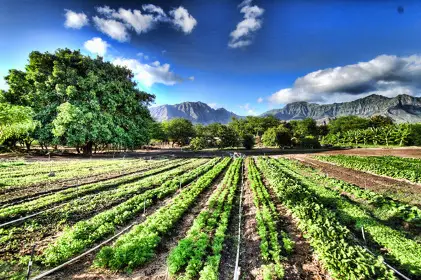Organic Farming
Organic farming is an agricultural process used to produce food and in some cases fiber. Organic farming relies on the developing biological diversity within the fields to disrupt the habitat of pests. The soil fertility is maintained and replenished. The advantages and disadvantages of organic farming is listed below.
Advantages of Organic Farming
There are many advantages of organic farming such as –
- Nutritional value of the food is higher than non-organic foods.
- No poisons or chemicals have been used on or around the plants and animals.
- The food tastes better than non-organic foods, the taste is enhanced and easily distinguishable.
- Plants become disease and pest resistant as the soil is fully cultivated.
- Organic crops are able to compete with weeds for the nutrients of the soil and many times dissuade the growth of weeds.
- Costs are lower because of not using the agrichemicals that are so expensive.
- Organic plants are more draught resistant, the plants roots are not damaged by the use of chemicals.
- The value of organic crops has increased as more and more people are willing to pay for the pricier foods.
Read more: Intensive Farming: Pros and Cons

Disadvantages of Organic Farming
The disadvantages of organic farming including the followings.
- Intensive farming is more productive than organic farming, the yield of organic farms is lower.
- Organic farmers are more dependent on cultivation to remove weeds and rocks before sowing seeds, this takes more time.
- Genetically modified crops are more convenient and easier to find.
- Organic farming takes much more time and energy.
- Organic farmers must be skilled and willing to learn new techniques.
